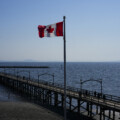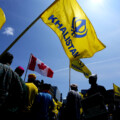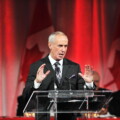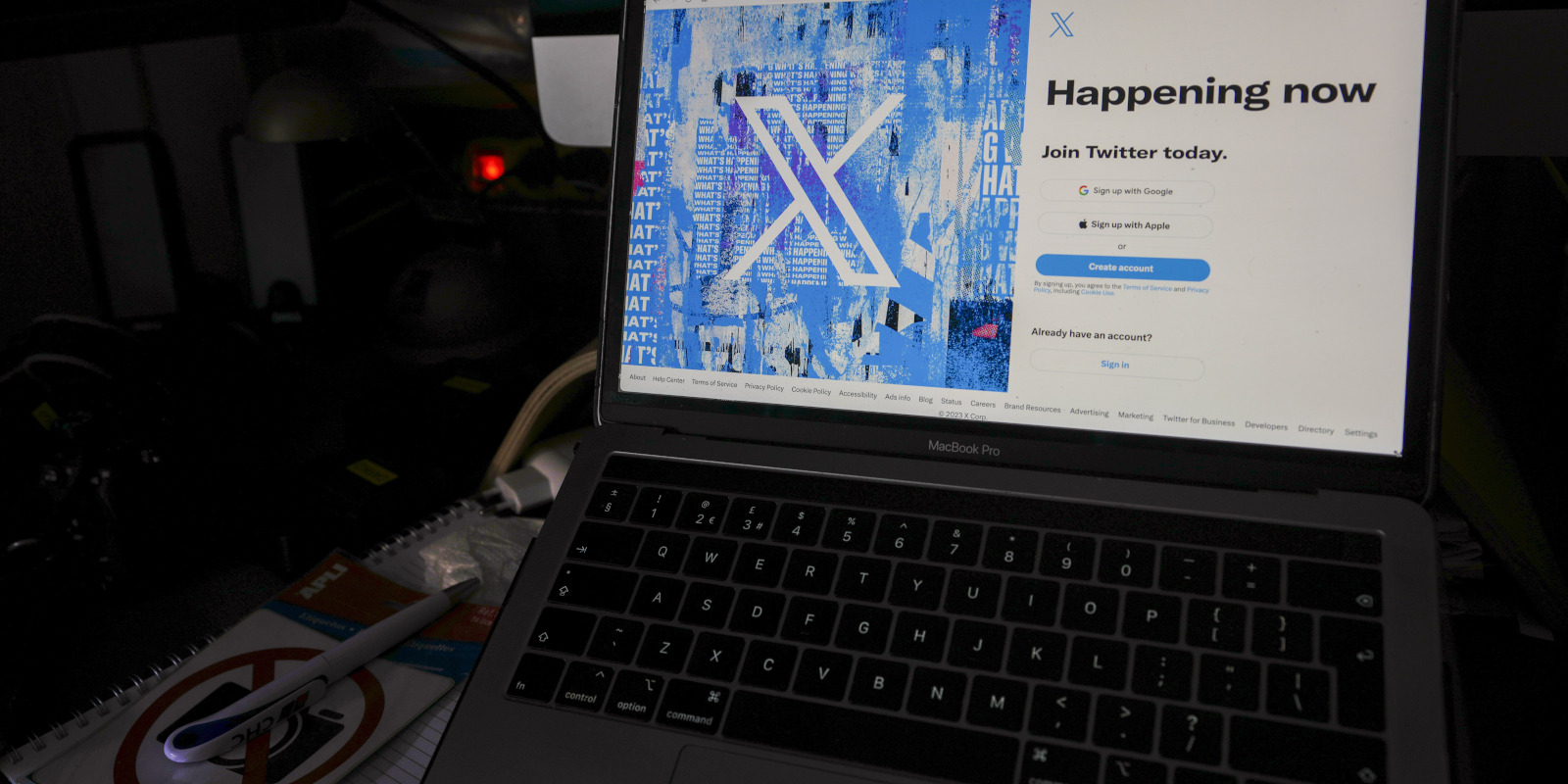In less than two years, Nate Hochman went from “rising star on the intellectual right” to political pariah after being fired last month from the Ron DeSantis campaign for tweeting out a video he created containing a Nazi symbol.
Hochman, a former staff writer at National Review who had also made appearances on programs such as Tucker Carlson Today, has become a cautionary tale for hyper-online political activists who are steeped in digital culture and its often glib embrace of extremism.
But how did Hochman, who was included in a 2021 article published by The New Republic titled, “The Radical Young Intellectuals Who Want to Take Over the American Right,” whose writing has been featured in Newsweek and the New York Times, and who is also Jewish, end up retweeting far-Right imagery?
Journalist and YouTuber J.J. McCullough thinks that many “hyper-online” people see far-Right extremist communities on the internet and believe they are electorally significant, which is not borne out in reality.
“I think a lot of these guys get into the mindset where they have to be able to code switch to some degree, and use their (extremist community’s) symbols and learn their vocabulary,” says McCullough. “It’s a false impression that I think is born from a kind of narcissism that views the communities that you are personally most familiar with as being the ones that are the most politically significant.”
McCullough says that many ambitious and talented young men who are interested in climbing the political ladder have grown up at a time when extremist communities have seen their influence grow on the internet.
“As a result, they go about their business of helping their bosses win elections and so forth, I think that they have a real pronounced sense that this is a group that has to be appeased, and has to receive some degree of sort of formal attention,” says McCullough.
Hub contributor and Edmonton-based lawyer Karamveer Lalh says people are social animals and will want to surround themselves with like-minded individuals in both real life and the internet.
“They also will generally want to be in an in-group,” says Lalh. “Accordingly, if a person is naturally contrarian against liberal ideas, but if they do not have strong attachment to internally grounding ‘first-principles,’ then they’re at more risk of radicalization.”
Lalh says that within online platforms like Reddit, users dissatisfied with the site’s mostly progressive mainstream subreddits will create their own dissident subreddits to espouse contrarian views.
Anthony Koch, managing principal at AK Strategies, says the current era, where the post-Cold War consensus is increasingly coming under criticism, is ripe for radicalizing the politically engaged. He compares it to the interwar period between the First World War and the Second World War when radical ideologies like communism and fascism spread across the world.
“It’s definitely a trend that I’ve noticed, anecdotally and otherwise, with friends of mine on either side of the political spectrum who, even a few years ago, would have been considered firmly within the mainstream,” says Koch. “One too many Reddit posts and all of a sudden it’s like, ‘Whoa, where did you start thinking that?’”
Koch says that as the interwar period and the Second World War II fades away from living memory, the internet provides a platform for people to relitigate the past.
In recent years Reddit has shut down several subreddits created by far-Right online communities for repeated user violations, including the QAnon subreddit r/CBTS_stream, and most famously r/The_Donald, which had roughly 800,000 members when it was closed in 2020.
Koch says people who are predisposed to being provocative have always existed, but the internet allows them to coalesce within online platforms.
Lalh says that in Hochman’s specific case, many conservatives who lean further toward the political Right are often frustrated by being labelled as a “Nazi.”
“Obviously being labelled a Nazi is a byword for being ‘evil’ and ‘bad’,” says Lalh. “Considering the same friend/enemy distinction above, if one’s enemies are calling you ‘Nazis’ well that may lead one to question, “Well, how bad can Nazis really be?'”
To prevent this sort of radicalization, Lalh suggests that people should have a firm understanding and commitment to first principles that are more substantive than defining friends and enemies, which requires self-reflection not always available within an echo chamber.
McCullough says that because the Republicans are the sole party of the political Right in the U.S. many far-right elements fall under its umbrella, whereas the Conservatives in Canada benefit from the existence of the People’s Party, led by Maxime Bernier, which he says is a more attractive option for extremists.
“The Conservatives, I suppose, have a lot to be grateful for, in the sense that Bernier has probably sort of taken some of these people off their hands, so to speak,” says McCullough.
Recommended for You

‘Not a guide to practical action’: David Frum on 60 years of George Grant’s Lament for a Nation

Ginny Roth and Brian Dijkema: Why Ontario should allow independent schools and unlock true choice in education

Need to Know: Canadian multiculturalism is ‘dangerously adrift’

‘Disloyalty to a friend’: Sean Speer on the cultural tension captured by the recent clash between Don Cherry and Ron MacLean




